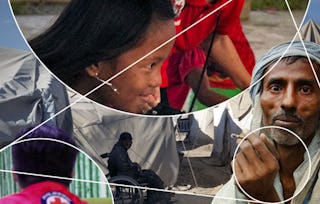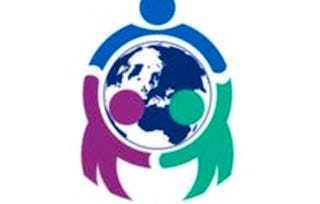NCDs are the leading cause of death in almost every region of the world, and place a huge burden on individuals, families and societies. Humanitarian settings have a negative effect on the levels of disease, and the possibility of treatment. The importance of NCDs in global health is acknowledged by their inclusion in the Sustainable Development Goals, which call for a reduction of a third in premature mortality from NCDs by 2030. However, NCDs have until recently received little attention in humanitarian settings, leaving prevention, care and treatment needs largely unaddressed among some of the most vulnerable populations. According to the World Health Organization, 70 percent of global deaths are due to NCDs. The four main disease groups which cause the greatest number of deaths are cardiovascular disease, cancer, diabetes and chronic obstructive pulmonary disease (including asthma).

Non-Communicable Diseases in Humanitarian Settings

Non-Communicable Diseases in Humanitarian Settings

Instructor: Siri Tellier
4,861 already enrolled
Included with
118 reviews
Skills you'll gain
Details to know

Add to your LinkedIn profile
9 assignments
See how employees at top companies are mastering in-demand skills

There are 3 modules in this course
In module one you will learn about why NCDs have increased in the world as a whole and about why NCDs are a particular problem in humanitarian emergencies or crises. Natural disasters and complex emergencies including armed conflict may have a negative effect, both on the levels of disease, and on the possibilities for preventing, treating or caring for people with NCDs.
What's included
6 videos7 readings3 assignments
In module two you will learn about some of the basic approaches of humanitarian action and how they might that apply to NCDs. This would include basic concepts, and how they might help or hamper the response to NCDs.
What's included
4 videos9 readings3 assignments
In module three you will learn about prioritization (the classical first priority for health response to save lives, and concentrate on excess mortality and morbidity), the importance of risk analysis (the risk equation), the challenges involved in transition from acute to longer term assistance – from blueprint to contextualizing and building capacity – as well as about longer term budgetary issues.
What's included
4 videos7 readings3 assignments
Instructor

Offered by
Explore more from Public Health
 Status: Preview
Status: PreviewUniversity of Copenhagen
 Status: Preview
Status: PreviewEmory University
 Status: Free
Status: FreeJohns Hopkins University
 Status: Free Trial
Status: Free TrialImperial College London
Why people choose Coursera for their career

Felipe M.

Jennifer J.

Larry W.

Chaitanya A.
Learner reviews
- 5 stars
80.50%
- 4 stars
18.64%
- 3 stars
0.84%
- 2 stars
0%
- 1 star
0%
Showing 3 of 118
Reviewed on May 18, 2021
So valuable course and great learning opportunity- really recommended and to review again for info refresh
Reviewed on Jul 20, 2023
I loved the case studies and the articles to read.
Reviewed on Oct 2, 2020
it has been a great for me to have experience on this kinds of course.

Open new doors with Coursera Plus
Unlimited access to 10,000+ world-class courses, hands-on projects, and job-ready certificate programs - all included in your subscription
Advance your career with an online degree
Earn a degree from world-class universities - 100% online
Join over 3,400 global companies that choose Coursera for Business
Upskill your employees to excel in the digital economy
Frequently asked questions
To access the course materials, assignments and to earn a Certificate, you will need to purchase the Certificate experience when you enroll in a course. You can try a Free Trial instead, or apply for Financial Aid. The course may offer 'Full Course, No Certificate' instead. This option lets you see all course materials, submit required assessments, and get a final grade. This also means that you will not be able to purchase a Certificate experience.
When you purchase a Certificate you get access to all course materials, including graded assignments. Upon completing the course, your electronic Certificate will be added to your Accomplishments page - from there, you can print your Certificate or add it to your LinkedIn profile.
Yes. In select learning programs, you can apply for financial aid or a scholarship if you can’t afford the enrollment fee. If fin aid or scholarship is available for your learning program selection, you’ll find a link to apply on the description page.
More questions
Financial aid available,

